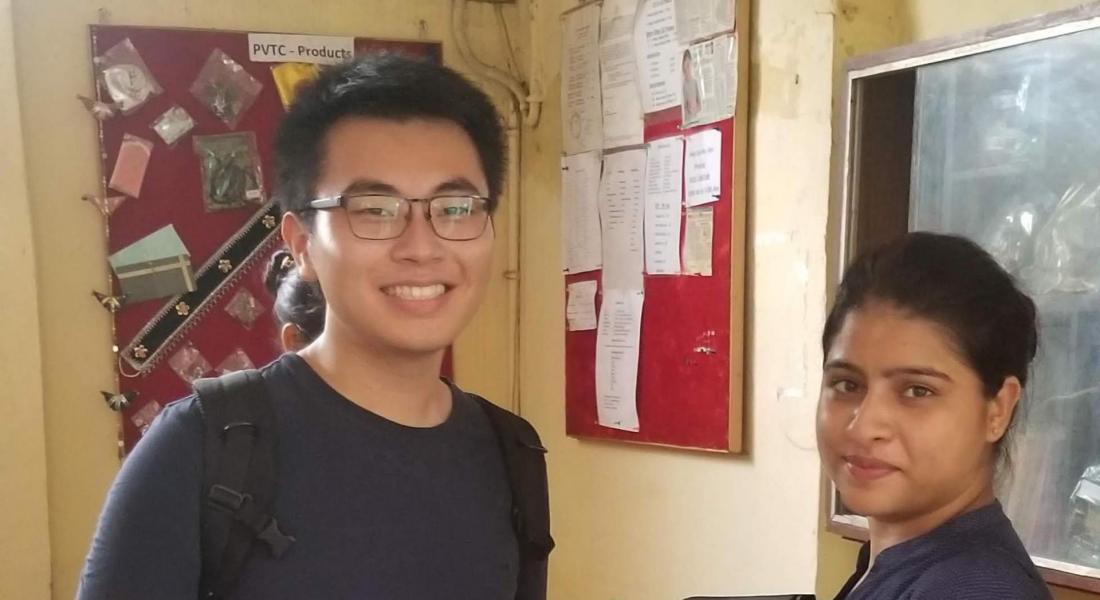
I arrived in Mumbai late Saturday night, and on Monday evening I flew to Kozhikode. The next day, I was directed to take the bus to the Medical College nearby the Composite Regional Center (CRC) and then take an autorickshaw from there. When I arrived at the CRC, a staff member greeted me and gave me a general overview of the services offered and told me to return the next day to talk to the director. I arrived the next day and had the opportunity to speak to the director who generously offered me an internship position at the CRC so that I could conduct my research. I had to go to the bank to pay a small fee for a demand draft as a part of the process. I spent the next two days talking with the special education department. On Friday, I also had the opportunity to meet some of the interns who are studying to become district collectors.
I remember how relieved and happy I was when I saw the sign for the Composite Regional Center (CRC) in Kozhikode; the place actually existed! A part of me was worried that once I got to the city things would not work out and I would be scrambling to pull a project together. Fortunately, most of my worries were dispelled the day I met the director. He welcomed me in with kindness and support. Not only did he give me full access to observe and speak with his staff, he also connected me to other institutes nearby.
Through my interactions with professionals in Kozhikode, I began to build a picture of the experience of a person with intellectual disability (PWID) in India and specifically in the state of Kerala. I also began to understand the lived experiences of those who take care of PWID. Much of the treatment process is focused on rehabilitation as opposed to medical treatment. It is through therapy that children and adults can see significant changes over a consistent period of treatment. Although the CRC in Kerala has only been operational for a few years, it is already setting an example for other CRCs on how to increase awareness and provide better support for families. The Institute of Mental Health and Neuroscience (IMHANS) and CRC-Kozhikode try their best to use a multidisciplinary approach in the care of their patients. There are a few constraints to this that include lack of personnel, overflow of patients, and limited time. Despite this, both centers are trying their best to increase the quality of services they provide to their patients.





